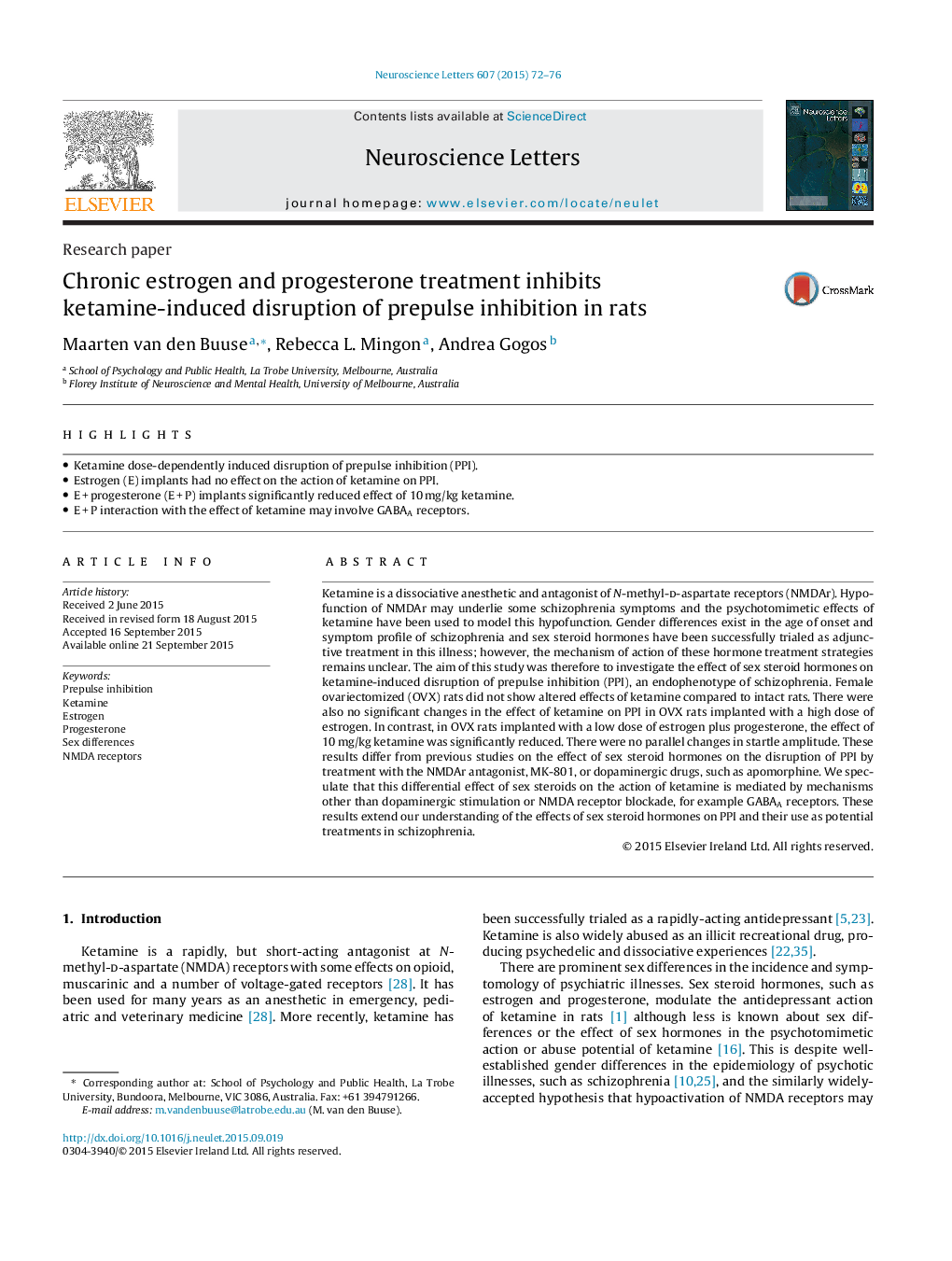| Article ID | Journal | Published Year | Pages | File Type |
|---|---|---|---|---|
| 6280597 | Neuroscience Letters | 2015 | 5 Pages |
Abstract
Ketamine is a dissociative anesthetic and antagonist of N-methyl-d-aspartate receptors (NMDAr). Hypofunction of NMDAr may underlie some schizophrenia symptoms and the psychotomimetic effects of ketamine have been used to model this hypofunction. Gender differences exist in the age of onset and symptom profile of schizophrenia and sex steroid hormones have been successfully trialed as adjunctive treatment in this illness; however, the mechanism of action of these hormone treatment strategies remains unclear. The aim of this study was therefore to investigate the effect of sex steroid hormones on ketamine-induced disruption of prepulse inhibition (PPI), an endophenotype of schizophrenia. Female ovariectomized (OVX) rats did not show altered effects of ketamine compared to intact rats. There were also no significant changes in the effect of ketamine on PPI in OVX rats implanted with a high dose of estrogen. In contrast, in OVX rats implanted with a low dose of estrogen plus progesterone, the effect of 10Â mg/kg ketamine was significantly reduced. There were no parallel changes in startle amplitude. These results differ from previous studies on the effect of sex steroid hormones on the disruption of PPI by treatment with the NMDAr antagonist, MK-801, or dopaminergic drugs, such as apomorphine. We speculate that this differential effect of sex steroids on the action of ketamine is mediated by mechanisms other than dopaminergic stimulation or NMDA receptor blockade, for example GABAA receptors. These results extend our understanding of the effects of sex steroid hormones on PPI and their use as potential treatments in schizophrenia.
Related Topics
Life Sciences
Neuroscience
Neuroscience (General)
Authors
Maarten van den Buuse, Rebecca L. Mingon, Andrea Gogos,
